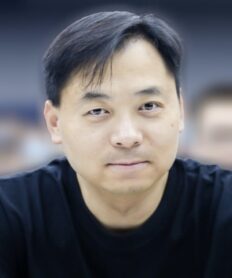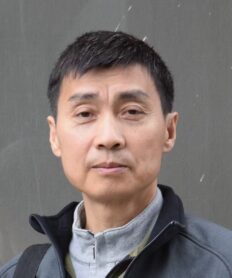Plenary Speakers
Deep Model Fusion
Abstract: In recent years, we have witnessed a profound transformation in the learning paradigm of deep neural networks, especially in the applications of large language models and other foundation models. While conventional deep learning methodologies maintain their significance, they are now augmented by emergent model-centric approaches such as transferring knowledge, editing models, fusing models, or leveraging unlabeled data to tune models. Among these advances, deep model fusion techniques have demonstrated particular efficacy in boosting model performance, accelerating training, and mitigating the dependency on annotated datasets. Nevertheless, substantial challenges persist in the research and application of effective fusion methodologies and their scalability to large-scale foundation models. In this talk, we systematically present the recent advances in deep model fusion techniques. We provide a comprehensive taxonomical framework for categorizing existing model fusion approaches, and introduce our recent developments, including (1) weight learning-based model fusion and data-adaptive MoE upscaling, (2) subspace learning approaches to model fusion, and (3) enhanced multi-task model fusion incorporating pre- and post-finetuning to minimize representation bias between the merged model and task-specific models.
Short Bio: Dacheng Tao is currently a Distinguished University Professor and the Inaugural Director of the Generative AI Lab in the College of Computing and Data Science at Nanyang Technological University. He was an Australian Laureate Fellow and the founding director of the Sydney AI Centre at the University of Sydney, the inaugural director of JD Explore Academy and senior vice president at JD.com, and the chief AI scientist at UBTECH Robotics. He mainly applies statistics and mathematics to artificial intelligence, and his research is detailed in one monograph and over 300 publications. His publications have been cited over 140K times and he has an h-index 180+ in Google Scholar. He received the 2015 and 2020 Australian Eureka Prize, the 2018 IEEE ICDM Research Contributions Award, 2020 research super star by The Australian, the 2019 Diploma of The Polish Neural Network Society, and the 2021 IEEE Computer Society McCluskey Technical Achievement Award. He is a Fellow of the Australian Academy of Science, ACM and IEEE.

The evolution of LLMs
test
Short Bio: Zicheng Liu is currently a senior director of GenAI at AMD, leading a GenAI team for large foundation model training. He received his PhD from Princeton University in 1996, a M.S. from the Institute of Applied Mathematics, Chinese Academy of Sciences in 1989, and a B.S. from Huazhong Normal University in 1984. Prior to joining AMD, he was a partner research manager at Microsoft and his team developed world-class computer vision and vision-language models which have been deployed in Azure AI Services. He led a team that developed Azure Kinect Body Tracking SDK for RGB-D based 3D skeletal tracking which is a popular tool used by games and robotics developers and researchers. Before joining Microsoft Research in 1997, he worked at Silicon Graphics where he developed a trimmed NURBS tessellator shipped in both OpenGL and OpenGL Optimizer. Zicheng Liu co-authored three books: “Face Geometry and Appearance Modeling: concept and applications”, Cambridge University Press, “Human Action Recognition with Depth Cameras”, Springer Briefs, and “Human Action Analysis with Randomized Trees”, Springer Briefs. He won the best paper award in IEEE ICME 2007. He has served as area chairs and OC members for many international conferences. He was a technical co-chair of 2010 and 2014 IEEE International Conference on Multimedia and Expo and a general co-chair of 2012 and 2022 IEEE Visual Communication and Image Processing. He was a co-chair of IEEE CVPR Workshop on Human Activity Understanding from 3D (HAU3D) from 2011-2013. He served as the chair of Multimedia Systems and Applications Technical Committee of IEEE CAS society and a steering committee member of IEEE Transactions on Multimedia. He served as the Editor-in-Chief of Journal of Visual Communications and Image Representation from 2015-2024. He is an affiliate professor in the department of Electrical Engineering, University of Washington. He was an IEEE distinguished lecturer from 2015-2016. He won APSIPA Industrial Distinguished Leader award. He is a fellow of IEEE.

Synthetic Media Verification in the Era of Generative AI
Abstract: With the rapid progress of recent years, techniques that generate and manipulate multimedia content can now provide a very advanced level of realism. Powered by large language models, text-driven synthesis tools allow the user to modify or create from scratch images and videos by means of simple text instructions. On the one hand, this opens the door to a series of exciting applications in different fields such as creative arts, advertising, film production, video games. On the other hand, it poses enormous security threats. Therefore, there is an urgent need for automated tools capable of detecting false multimedia content and avoiding the spread of dangerous false information. This talk aims to present an analysis of the methods for synthetic media verification. Special emphasis will be placed on the phenomenon of AI-generated content and on modern data-driven forensic methods to fight them. The analysis will help highlight the limits of current forensic tools, the most relevant issues, the upcoming challenges, and suggest future directions for research.
Short Bio: Luisa Verdoliva is a Professor at University Federico II of Naples, Italy, where she leads the Multimedia Forensics Lab. Her scientific interests are in the field of image and video processing, with main contributions in the area of multimedia forensics. She has actively contributed to the academic community through service as General Chair of WACV 2024, Workshop Chair of CVPR 2024 and Technical Chair of IJCB 2023, IH&MMsec 2021, WIFS 2019. She is a former Chair of the IFS-TC for the 2021-2022 term and is Editor-in-Chief of the IEEE Transactions on Information Forensics (2025-2027). She is the recipient of the 2018 Google Faculty Research Award and a TUM-IAS Hans Fischer Senior Fellowship (2020-2024). She is an IEEE Fellow.

